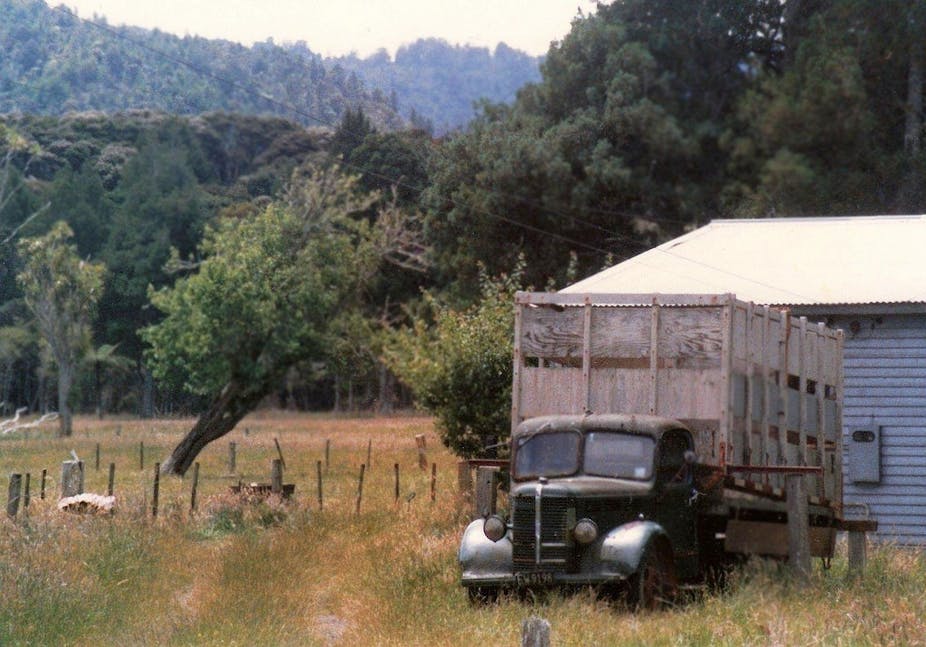Full revelations of the Gillard government’s carbon tax are expected in the coming days, but the decision to spare the Australian motorist has just been announced. Picking that this might happen was a lot easier than picking the Melbourne Cup.
A carbon tax on petrol was never likely
Why was it expected? Firstly, the Rudd government exempted motorists for the first few years of its proposed and rejected Carbon Emission Trading Scheme, so there was a major precedent in place.
Secondly, the federal Opposition and the conservative commentators have made much of the issue in the popular media, so we knew that it would be a sensitive matter for the minority Gillard government.
Thirdly, there has been national news of opinion polls claiming that a majority of Australians were as unhappy with the proposed carbon tax as they were with the Gillard government — which may or may not be true.
All-in-all, the politics were aligned for dropping the carbon tax on petrol.
Too much emphasis on rural families?
PM Julia Gillard said that: “Families, tradies, small business people do not have to worry about a petrol price increase.” And the reasoning is instructive.
Apparently it was independent MP, Tony Windsor’s concerns over rural families that prompted the decision. “He has put forward a powerful case for people in country Australia who have got no choice but to jump in their cars to get places” said the PM.
As rationalisations go, this one isn’t particularly convincing. For one thing, not many of our transport carbon emissions come from rural households. As an emissions source, they could have been readily exempted with little weakening of the overall scheme.
Or rural households could have been added to the compensation packages under the carbon tax and provided with rebates.
Or those households could adopt strategies such as buying more fuel-efficient vehicles, driving less, or adopting one of many other strategies to save fuel, and be subsidised for doing so.
We need a more realistic approach to petrol
Suggesting that households need not worry about future petrol prices is not the most helpful of assurances. Australia and the rest of the world are facing the end of the era of cheap oil thanks to the forces of supply and demand for this non-renewable resource.
There are very good grounds for worrying about future petrol supplies. This really should have been part of the wider debate on this issue.
As for the government’s largesse in saving the Australian motorist from a great burden by avoiding a carbon tax on petrol, it might help to be acquainted with some simple facts.
A worst-case scenario is that a $25 a tonne carbon tax increases petrol retail prices by ten cents a litre; a real-world scenario may be one-half this amount.
An average Australian private motor car covers around 15,000 kilometres a year at fuel efficiency of about 11 litres/100 km, thereby consuming 1650 litres annually.
At ten cents a litre—the worst case—the carbon tax adds extra $165 the annual cost of motoring. If the PM’s families, tradies, and small business people are driving a 6-cylinder Holden or Ford, according to the motorists’ organisations (such as the RACV) they face a weekly operating cost of around $240.
Not to belabour the point, but the worst the carbon tax can do over a year is less than the cost of running a large car for one week. How did this become the stuff of political controversy?
Not good news for alternative transport
I doubt that the carbon tax (or carbon emissions trading) will be effective in bringing transport emissions down through price signals. But there is an important role that such pricing can play — raising revenue that can be directed at other measures that can reduce transport emissions. Such measures are investing in public transport, land and transport planning, and infrastructure for walking and cycling.
Of course, a carbon tax is but one way to raise revenue. But once you have such carbon tax revenue, this can be spent advantageously on measures to complement the carbon tax.
So here are three reflections on the government’s decision. Firstly, by exempting petrol from the carbon tax, the government has weakened the case for spending carbon tax revenue on complementary measures for reducing transport emissions.
Surely the non-transport sectors paying carbon taxes, such as the electricity generators and the domestic and commercial electricity purchasers, will have a stronger claim on this revenue?
Secondly, the petrol exemption reduces the total carbon tax revenue. Since the only way that carbon taxation can effectively reduce transport emissions in the short term is through complementary policies funded from the public purse, reducing available public funding erodes this effort.
Nationally, we’ve struggled to allocate resources to public transport infrastructure and against a growing need for these projects, this loss of potential funds has to be seen as a major lost opportunity.
Thirdly, any exemptions undermine the integrity of the scheme itself. Some concessions and compromises will always be necessary; however, significant exemptions can undermine the effectiveness of the carbon tax to the extent that the original rationale for the scheme no longer holds.
It seems that PM Gillard, Opposition Leader Abbott, and at least one of the parliamentary independents are all claiming the exemption of petrol as a victory for the wider community.
This victory appears to have come at the price of conceding that the carbon tax will not address transport emissions, the second-largest source of our carbon emissions following stationary energy.

